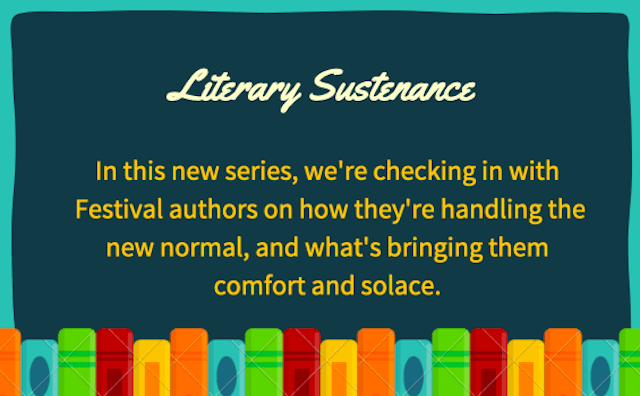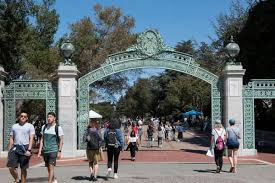Isolation isn’t confining; it’s dangerously freeing. It’s as if the government is saying, “Go! Escape into the safe anonymity of the Internet. Ignore the rising and falling of the sun. Forget your social obligations, withdraw from the world’s unpleasantries, and succumb to that dull thrum of sleep, eat, work, repeat. It’s your civic duty.”
-Esther Kao, BABF Writing intern, UC Berkeley ’20
For this special edition of Literary Sustenance, we’re featuring reflections from our very own BABF interns, all undergraduates at UC Berkeley, on the disruption of higher education due to COVID-19.
In our first post on this topic, we featured a Q&A with poet and critic, longtime New Yorker contributor, and Wellesley College English professor Dan Chiasson, whose New Yorker essay, “The Coronavirus and the Ruptured Narrative of Campus Life,” struck a chord with students, teachers, and families across the country.
Now, we’re proud to share with you some original reflections from the other side of the lectern (or the Zoom screen).
Even in the midst of a chaotic, interrupted semester, our interns have been blowing us away with their work ethic, skill, and commitment. They attend our (extremely long) programmatic Zoom meetings; they take the initiative to offer us original and fresh ideas; and they’re always ready to jump in and help with special projects that spring up in the midst of this new normal.
On top of everything else they’ve been doing in addition to their regular coursework—author interviews! Newsletter features! Blurbs! Prospect research!—four of our interns took the time to share what the radical interruption of campus life brings up for them and how they’re navigating it, in a series of short reflections that are intimate, insightful, and necessary. Enjoy!
Esther Kao, English and Cognitive Science Major, Class of 2020, BABF Writing Intern
“As some bright-eyed high school students with an irritating propensity for bursting into song once declared, ‘We’re all in this together.’ “
Having your final semester of college converted into a never-ending succession of Zoom calls is certainly an experience exclusive to the class of 2020. How’s that going, you ask?
Great, just great.
I’d tell you my current state of mind if I had one. I’ve always been a little too good at packing my emotions into a faraway chest of unprocessed, probably distressing experiences. Sure, some tears may have escaped when my roommate of four years gathered up the pieces of her from our apartment and left – I was in a virtual meeting at the time and openly sobbed in front of twenty concerned individuals – but after I’d sniffed in all my snot and listened to Wiz Khalifa’s “See You Again” (ft. Charlie Puth) I found that the emotions were all used up. All I had left was a pounding headache.
Going home was easy – too easy. I’d read emails from my professors about “these dark and uncertain times” and scroll past reminders to “take care of yourself” while deposited like a lump on my bed. Essay deadlines were extended, midterms were cancelled, and all expectations for academic performance plummeted. Isolation was my entry point into a self-indulgent haze of online shopping, YouTube videos, and generally pointless lounging. Though I could express generalized dismay in (virtual) conversation, I couldn’t seem to replicate that publicized grief when by myself. I rather felt as if I should have more feelings.
Mid-quarantine I came to a bold and brilliant realization: I enjoy being a hermit. Funny how it takes a global pandemic for that to sink in. Isolation isn’t confining; it’s dangerously freeing. It’s as if the government is saying, “Go! Escape into the safe anonymity of the Internet. Ignore the rising and falling of the sun. Forget your social obligations, withdraw from the world’s unpleasantries, and succumb to that dull thrum of sleep, eat, work, repeat. It’s your civic duty.”
Like I said, great.
A bit of personal history here: freshman year, I did the social distancing thing by choice. I had been dealt a personal defeat of the I-dislike-who-I-am variety and thus entered college with diminished self-esteem and a truly godawful sleep schedule. I spent many hours staring into the soulless glare of my computer screen as day slipped into night into day. Though some instinctual, repressed urge begged me to fix my habits, I couldn’t muster the will. I felt nothing, and so I did nothing.
Come this government-imposed isolation, it’s hard not to flashback to freshman year. But self-isolating alongside millions of others is different than when you’re doing it alone. Never has the world been so in unity. Pajama-clad against the backdrop of their homes are news reporters, talk show hosts, and professors alike. Dispirited though I may be at times, the experience of COVID-19 escapes no one. As some bright-eyed high school students with an irritating propensity for bursting into song once declared, “We’re all in this together.”
Gone is the sense of “I dug my own grave and I’m wallowing in it.” The blame lies with COVID-19, and I’ll be damned if I let it win. I’ve started working out, ironically. I never was a gym-goer, but nation-wide restrictions work magic on motivations. I also eat three meals, attend all my classes, and make efforts to get some facetime with friends. (We’re still working on that sleep schedule).
Quarantine has brought out the worst and also the best in me. I can’t say that I’ve mastered the art of coping, but whatever I’m doing (even now as I write) sure looks something like it.
Kristina Kim, English major, Class of 2021, BABF Writing Intern
“I’m just here, waiting to move, preparing and pandering, but not really doing anything of substance, because this is not where I’m supposed to be. This is liminal space: the in-between and unsettled.”
It feels wrong to say that being at home is hard.
Because home for me means manicured lawns and stable internet connection, supportive family, and good friends who, like me, have been forced back to the ‘burbs for the rest of the school year. I’m surrounded by good influences and regularly scheduled meal times—the perfect antithesis to the usual chaos of my college life.
Because home for me is also cracked sideways and cramped apartments, roommates who are only ever yelling distance away, and the ever-present stench of piss and weed on the streets. Breakfast for dinner probably shouldn’t be as frequent as it is when I’m at school, but sometimes dinner is breakfast when you’re as functionally nocturnal as your class schedule will allow.
So maybe being at home is hard because I’m forced to face the tragedy that is my college sleep schedule. Or maybe it’s the fact that now, I’m accountable for more than just the minimum requirements for survival. It’s not just about trying to be a good student anymore. I also have to be a good daughter for my parents, a good sister for my sibling, a good employee for my job, and a good armchair for my cat.
I no longer have roommates around me who go to the same school and suffer from the same bad habits. Instead, I’m surrounded by functional adults who clock in at 9, clock out at 5, and expect me to do the same. That is, they expect me to be a real person around them, even though I don’t feel like one.
I don’t feel like a real student, because I’m not going to school. But I don’t feel like a real adult either, because I’m sleeping on the top of a twin bunk bed, in floral sheets I’ve wet before. But I don’t feel like a real child, because I’m twenty and I have to file taxes now.
What I do feel like, I guess, is a passerby. A passenger, waiting at a bus stop or an airport terminal. I’m just here, waiting to move, preparing and pandering, but not really doing anything of substance, because this is not where I’m supposed to be. This is liminal space: the in-between and unsettled.
And even though I’m trying to find a destination—or, failing that, at least a direction that might point me toward one—via essays and internship applications, regular exercise, anything—I still feel like nothing. Like a ghost in my own home, doomed to wander this one place indefinitely until I either rise up to heaven or descend into hell.
And I’m not sure which home is which yet.
It’s all at once a lot more responsibilities and a lot less space to run from them. There’s also something about sleeping in the twin bunk bed of my childhood that makes me feel a lot less like an adult ready to face those responsibilities.
Between the lack of motivation and the increased obligation, the digital distance between me and the classroom becomes a tempting source of slack. With the camera off and microphone on mute, who’s to say whether I’m writing notes, falling asleep, or even at the screen?
Eva Hannan, UC Berkeley Rhetoric major, BABF Development Intern
“Processing major life events in the course of attending school can make anyone’s brain feel less than useful.”
Like most semesters, this one has been hard, but not the kind of hard I had almost gotten used to. The way I am experiencing this pandemic as a student feels very different from previous local tragedies and personal challenges. Most difficulties that I have faced as a first-generation, re-entry transfer student from Laney College were serious and impactful, but relatively short-lived. The 2018 Camp Fire in Paradise, California was extreme, both in its tragic scope and the extent to which it altered daily life in the Bay Area;and the power shut-off initiative put in place by PG&E last fall as a preventative measure was mildly disruptive. Now, in comparison, all of these seem minor.
Even when the smokey air kept us indoors with the windows shut, or the power cutoffs threatened to spoil all the food in the refrigerator, I was able to focus on my studies. But this situation feels different. As the latest and most severe of a long series of disruptions stemming from local and national emergencies, it reinforces a deep need in me to take responsibility and action. The pandemic appears to me to be a terrible culmination of the way humans are currently living on this planet.
As devastating as this outbreak has been in some of the world’s wealthiest countries, I shudder to think of what’s happening in places of less privilege like Palestine, Yemen and Syria’s Turkish border. Viruses and other diseases have a better chance to thrive when humans are stressed, unsheltered, undernourished or under-resourced. Yet shared susceptibility to these pathogens prove that we are all connected, no matter our circumstances. Racial, class and religious divisions have turned major portions of the world’s population into high-risk groups, and the effect of this will only prolong the global impact and devastation of this disease.
So, as you can see, my mind is not anywhere near my studies at the moment. Processing major life events in the course of attending school can make anyone’s brain feel less than useful—crumpled and cold like a forgotten load of wet laundry, plastered to the side of the washer for a couple of days before it’s noticed. I am reading for and attending my online classes, but my motivation feels completely sapped at times. I thought that I would have joyous free time, especially once I ceased non-essential interactions. Stuck at home with my partner and roommates in my (thankfully, blessedly) spacious home in Oakland, I am realizing that I have no discipline to speak of for online learning. Suddenly, it seems like a lot to build a working discipline in the midst of the learning itself. I feel slightly stunned by my lack of energy, but I am also realizing that I am processing a deluge of changes like everyone else.
A lot of communication is necessary for people to stay safe, healthy and sane in whatever our new normal becomes. With this pandemic in the mix, I know nothing else to do but get ready to know myself really well, practice remote learning whether I get good at it or not, and meditate on new ways to make words get through to people again. I personally plan to try my hardest—no real discipline or not. As we continue through this particular challenge, I think it’s healthy to recognize that we do not know what the near future will hold. Personally, I am taking time to notice many of the things that I consider to be the most precious in my life. I am hoping that this thankfulness and mindfulness for the fundamental components of my daily life stays with me as we find our way in what the future holds.
Caylee Lyman, English major and Creative Writing minor, Class of Fall 2020, BABF Programming Intern
“Learning online as an English major, as well as others in the humanities, is difficult. It can even feel absurd.”
One of the most pressing issues I, along with many of my peers, have faced since UC Berkeley’s shift to online classes is this: the university’s insistence on maintaining a sense of routine, structure, and normalcy during a time that feels resistant to any sort of consistency. During this time, I’ve constantly asked myself the same set of questions: 1) How can I retain normalcy in these times? 2) How do I cope with all aspects of my life drastically changed? and 3) Is achieving normalcy during a global pandemic even possible?
With the shelter-in-place order in full effect, we’ve become confined to our residences, and many students have had to return home to their families. I call myself lucky, because I’ve chosen to remain in my co-op, where I have a roof with a beautiful view of the Bay, food delivered to the house daily, and the community I’ve built with my remaining housemates. I feel privileged to be in my current position while others are facing housing and food insecurity, and lacking access to other basic survival needs.
Aside from most classes continuing to be held via Zoom at their normal times, I’ve experienced a harsh break in my routine. I’ve created a new schedule for myself to feel like life hasn’t stopped, and to maintain some semblance of structure. I can no longer take my favorite yoga class at RSF, sit in Café Milano humming the tune of coffee shop music while reading, or find a quaint spot in my favorite library on campus to study. Now, small walks around my neighborhood are the only time I leave my home. Even then, I am reminded of how much things have changed. Folks avoid looking each other in the eye as they pass, sometimes even crossing to the other side of the street.
Learning online as an English major, as well as others in the humanities, is difficult. It can even feel absurd. I now communicate with and see my professors and classmates (that is, those who join the meetings with video on) solely through the glass of a computer screen. I must mute myself at the start of every class. Before I can speak, I must click a button that raises a virtual hand. Office hours that are still being held by some professors are no longer face-to-face, but screen-to-screen, removing any chance of the same personal connection that could previously be built. To be expected to engage in the same level of our intellectual labor as before, during a time that is entirely not normal, feels unreasonable; at any rate, it’s not the college experience I signed up for.





